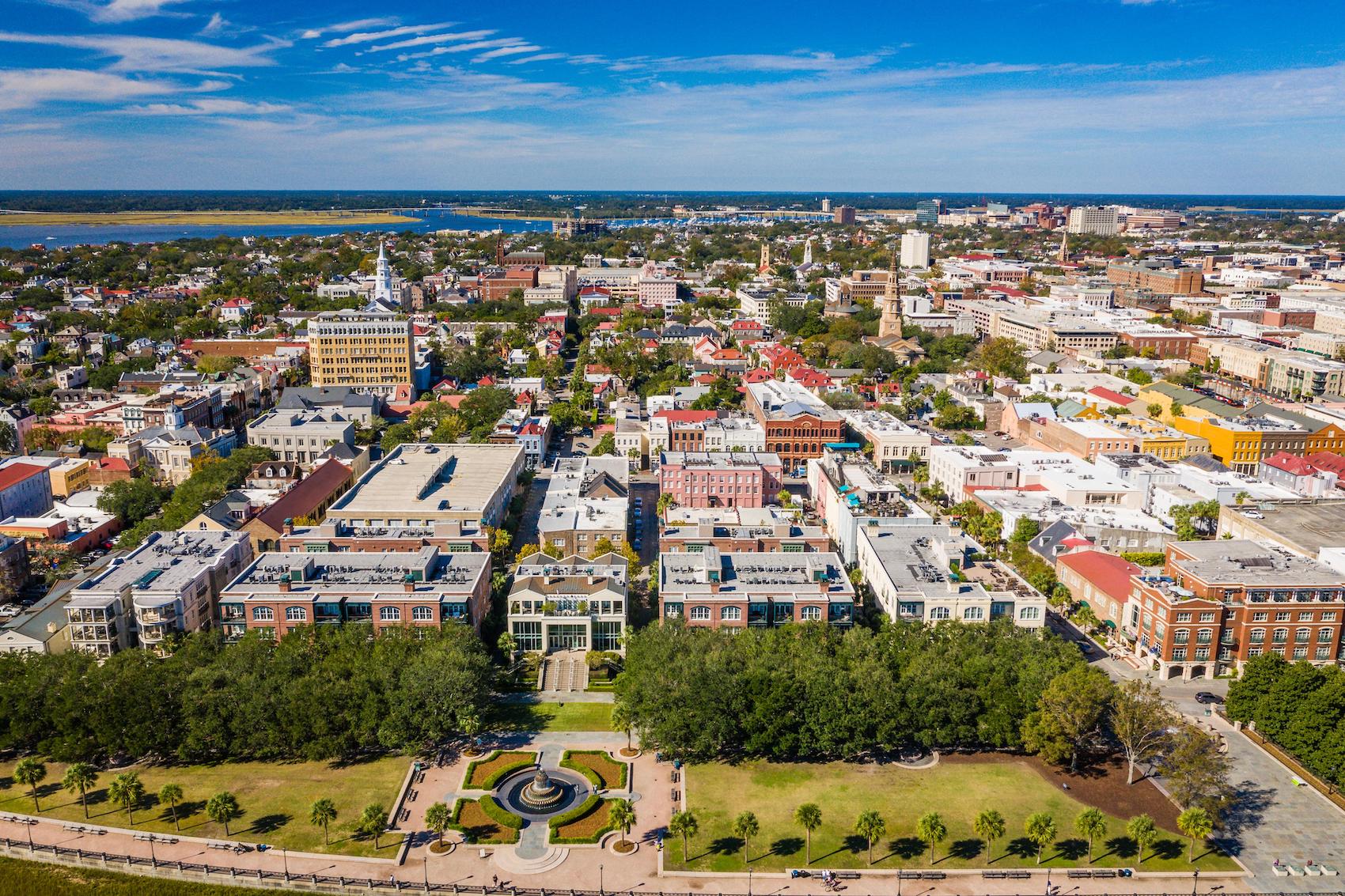 With an extended summer season and access to endless coastal waterways and beaches, historic sites, and an award-winning restaurant scene, it’s no surprise that the Holy City is a popular and fast-growing metropolitan area. The Charleston metro area sees an average of 26 new residents moving to the area each day! A move across state lines is an exciting adventure but comes with a number of adjustments including assimilating into the local culture, a higher cost of living compared to your previous locale, and learning the ins and outs of your new home. If you’re thinking of moving here, it’s important to understand just what contributes to the cost of living in Charleston SC.
With an extended summer season and access to endless coastal waterways and beaches, historic sites, and an award-winning restaurant scene, it’s no surprise that the Holy City is a popular and fast-growing metropolitan area. The Charleston metro area sees an average of 26 new residents moving to the area each day! A move across state lines is an exciting adventure but comes with a number of adjustments including assimilating into the local culture, a higher cost of living compared to your previous locale, and learning the ins and outs of your new home. If you’re thinking of moving here, it’s important to understand just what contributes to the cost of living in Charleston SC.
Living in the Charleston metro area is just slightly more expensive than the national average, mainly due to higher utility bills, according to several popular cost-of-living calculators. However, those online calculators often don’t tell the entire story. There are many factors that determine what things cost in different places, from the cost of housing to the price of toothpaste, but some big ticket items, such as property tax and insurance, are not usually included. Charleston residents do pay high utility bills, but when you take a deeper look into the numbers used to compare different cities, housing is the great differentiator.
Housing is a large part of the cost of living equation in Charleston. The price of buying/owning a home in the Charleston area is not incredibly high by national standards, but renting an apartment is one of the highest rental averages in the United States. Charleston is the 48th highest rent among 291 metropolitan areas in the U.S.
By comparison, for home prices, the area ranks 161st, making the tri-county area of Charleston, Berkeley, and Dorchester counties easier for buyers to find their ideal home. Of course, determining whether the cost of living is higher or lower than what you are accustomed to depends on where you’ve relocated from. Someone moving from San Francisco would find Charleston-area housing prices low, but someone from Greenville or Columbia would find our prices moderately higher.
Aside from housing, Charleston offers a relatively affordable lifestyle. The financial benefits from moving to the Holy City include lower property taxes. South Carolina is the 7th lowest average property tax rate in the nation. Aside from low property taxes, for retirees looking to relocate, Charleston is a great city to retire in. Living here means you don’t have to pay state tax on Social Security retirement benefits and seniors receiving any additional retirement income outside of Social Security have a $15,000 deduction in taxes.
There’s more that adds to the quality of life in Charleston than just the low cost of living index. Living in the Holy City means you’ll enjoy a city with an active, outdoor-centric culture, friendly people and jaw-dropping landscapes. Southern hospitality abounds, from award-winning restaurants, to unique Southern-style boutiques that line downtown’s King Street, not to mention the aura of historic charm that can be discovered along the streets and alleyways in downtown Charleston. It’s no wonder the Holy City is ranked so highly on numerous lists compiling the “Best Places to Live in the U.S. ”
Note: Before you make a move to a new city, it’s important to understand the implications of housing costs, taxes and insurance on your lifestyle and how combined, they will affect your cost of living. Our real estate team is experienced at understanding how to help buyers understand the impact of housing costs on your quality of life, and the neighborhood options that will best help you meet you budget. After all, when you get that formula right, there is simply no better place to live to experience the laid-back lifestyle of the coastal lowcountry and the beauty of Charleston, SC
Interested in Learning More?
Our expert teams - from development, investment, real estate, and property management - have experienced it all and have the insight to help you along the way.
Find Out More